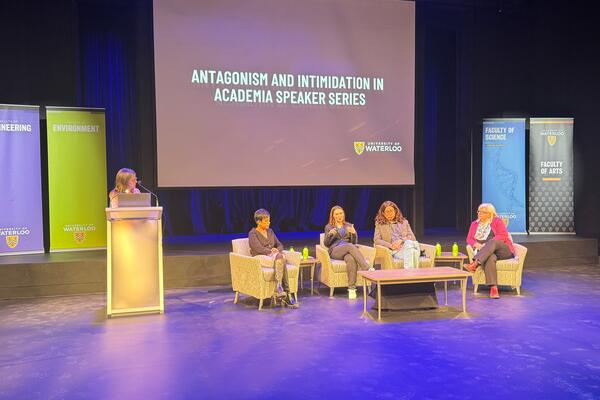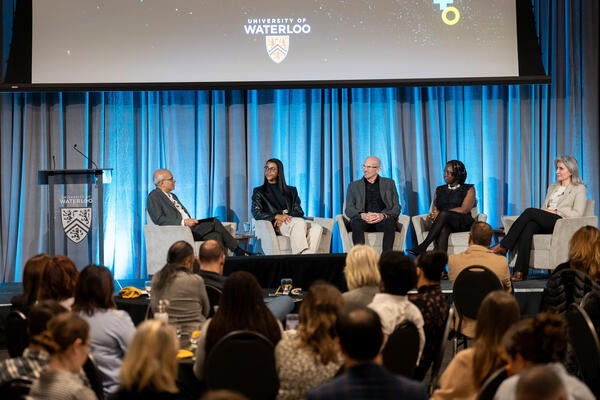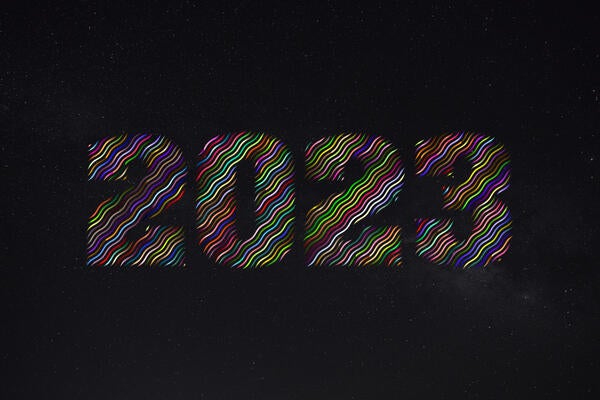World marks International Holocaust Day on January 27
Almost seven decades after the end of the Second World War, lessons of the Holocaust continue.
Almost seven decades after the end of the Second World War, lessons of the Holocaust continue.
By Christian Aagaard Communications & Public Affairs The Holocaust: It’s one of the most powerful words in modern history — a word filled with shame, anger, grief and regret.
The Holocaust: It’s one of the most powerful words in modern history — a word filled with shame, anger, grief and regret.
The calculated killing of six million Jews and hundreds of thousands of others as Nazi Germany spread across Europe, remains a potent catalyst for debate sixty-eight years after the end of the Second World War.
And so it should be, say two University of Waterloo professors as the world marks International Holocaust Remembrance Day on Jan. 27.
“This is not just a German phenomenon,” says Lynne Taylor, an associate professor in the Department of History. “It could happen anywhere; it has happened and could happen again. That’s why it’s important to remind ourselves that this isn’t unique, that there are lessons to take out of it.”
Conflict in the former Yugoslavia in the early 1990s, and Rwanda in 1994, stand out as contemporary examples of the depths cross-cultural enmity can reach.
While its worst elements occurred during the Second World War, the Holocaust gained momentum through escalating events devised by the governing Nazis going back to 1933. Europe already simmered with anti-Semitism; pogroms had sent Jews fleeing from one country to the next since the early 1800s.
Ironically, Germany under the Weimar Republic, which preceded the Nazis, was considered a safer haven than most of its neighbours, says Taylor.
As a day of remembrance, Jan. 27 is tied to the arrival in 1945 of Soviet troops at the Auschwitz concentration camp, where trainloads of men, women and children had been gassed to death over the course of the war. Scholars debate whether it is the best date on which to observe the Holocaust.
It’s more important, says Robert Jan van Pelt, a Holocaust historian and professor at Waterloo’s School of Architecture, that descendants of survivors and captors keep talking about this dark episode in human history. In many households after the war, it wasn’t to be discussed.
“The silence that existed within families has been broken,’’ van Pelt says in an email, “and the grandchildren and great-grandchildren of survivors — and in the case of Germany, also of perpetrators — have appropriated the Holocaust as part of their own history and identity.”

Read more
University of Waterloo researchers discuss the challenges faced by researchers amid rising antagonism in climate science discourse

Read more
Global Futures 2024 launch event engages dialogue and action on the world’s complex challenges

Read more
Here are the people and events behind some of this year’s most compelling Waterloo stories
The University of Waterloo acknowledges that much of our work takes place on the traditional territory of the Neutral, Anishinaabeg and Haudenosaunee peoples. Our main campus is situated on the Haldimand Tract, the land granted to the Six Nations that includes six miles on each side of the Grand River. Our active work toward reconciliation takes place across our campuses through research, learning, teaching, and community building, and is co-ordinated within the Office of Indigenous Relations.